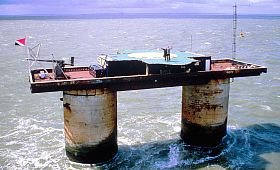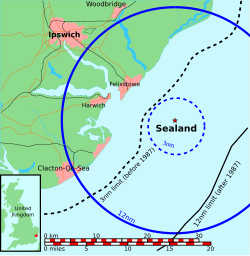Chopin, please do not change this thread into garbage... And because I think you do not deserve to write any statements about Poland, I'll try to do it for you.
But first - I'll make it clear - while I think Poland deserve to be in Civ games I know that it probably won't be (or maybe in second expansion, but it's indeed very doubtful). I have my own hypothesis why it is so, but don't want to write it here.
And sorry for the next "epic post"
 Science
Science:
Copernicus (all heard about him I pressume)
Marie Curie Sklodowska - two nobel prizes and two discovered chemical elements - radium and polonium (to honor Poland)
Ignacy Łukasiewicz - inventor of the modern kerosene lamp
Bronisław Kasper Malinowski - widely considered one of the most important 20th-century anthropologists
Karol Olszewski - In 1884, in his Kraków laboratory, Olszewski was the first to liquify hydrogen in a dynamic state, achieving a record low temperature of -225 °C
Kazimierz Prószyński - He patented his first film camera, called Pleograph (in Polish spelling: Pleograf), before the Lumière brothers, and later went on to improve the cinema projector for the Gaumont company, as well as invent the widely used hand-held Aeroscope camera.
Michał Sędziwój (Michael Sendivogius) - A pioneer of chemistry, he developed ways of purification and creation of various acids, metals and other chemical compounds. He discovered that air is not a single substance and contains a life-giving substance-later called oxygen-170 years before Scheele and Priestley.
Kazimierz Siemienowicz - General of artillery, gunsmith, military engineer, artillery specialist and pioneer of rocketry. For over two centuries his work was used in Europe as a basic artillery manual. The book provided the standard designs for creating rockets, fireballs, and other pyrotechnic devices. It discussed for the first time the idea of applying a reactive technique to artillery. It contains a large chapter on caliber, construction, production and properties of rockets (for both military and civil purposes), including multistage rockets, batteries of rockets, and rockets with delta wing stabilizers (instead of the common guiding rods).
Stanisław Marcin Ulam - participated in the Manhattan Project
Aleksander Wolszczan - the co-discoverer of the first extrasolar planets and pulsar planets.
Johannes Hevelius - As an astronomer he gained a reputation as "the founder of lunar topography" and described ten new constellations, seven of which are still recognized by astronomers. In 1641 he built an observatory on the roofs of his three connected houses, equipping it with splendid instruments, including ultimately a large Keplerian telescope of 45 m (150 ft) focal length, with a wood and wire tube constructed by himself. This may have been the longest "tubed" telescope before the advent of the tubeless aerial telescope.
Mieczysław Gregory Bekker - He was a leading specialist in theory and design of military and off-the-road locomotion vehicles, and an originator of a new engineering discipline called "terramechanics". Bekker authored the general idea and contributed significantly to the design and construction of the Lunar Roving Vehicle used by missions Apollo 15, Apollo 16, and Apollo 17 on the Moon. He was the author of several patented inventions in the area of off-the-road vehicles, including those for extraterrestrial use.
Henryk Władysław Magnuski - telecommunications engineer who worked for Motorola in Chicago. He was the inventor of one of the first Walkie-Talkies and one of the authors of his company success in the fields of radio communication.
Ernest Adam Malinowski - constructed at that time the world's highest railway Ferrocarril Central Andino in the Peruvian Andes in 1871-1876.
Tadeusz Sendzimir - engineer and inventor of international renown with 120 patents in mining and metallurgy. His name has been given to revolutionary methods of processing steel and metals used in every industrialized nation of the world.
Sylwester Porowski - his team is actively working at blue laser technology
Constructor of Meteor Rockets (I don;t know his name though) - series of rockets designed to study the upper parts of the atmosphere. Meteor 2K rocket reached the altitude of 90 km (some say that it reached 100km - which is considered space) Unfortunately it was during communistic times and the programme was abandoned by a Soviet order, as the USSR wanted to maintain its monopoly on the rocket industry.
Culture:
Fryderyk Chopin - I don't think I have to describe him.
Stanislaw Lem - science fiction writer, best know for his novel Solaris, which was later adapted in the 1972 and 2002. His books have sold 27 million copies worldwide.
Czeslaw Milosz - poet and writer, won Nobel prize for literature.
Ignacy Jan Paderewski - pianist, composer and statesman.
Roman Polanski - film director (and unfortunately a pedophile...)
Wislawa Szymborska - Poet. She won the 1996 Nobel Prize for Literature.
Krzysztof Penderecki - He has won prestigious awards including Grammy Awards in 1987 and 1998 and 2001, and the Grawemeyer Award for Music Composition in 1992.
Joseph Conrad (Józef Teodor Konrad Korzeniowski) - writer, wrote "Heart of Darkness" - "Apocalypse Now" movie is based loosely on it.
Henryk Sienkiewicz - was a Polish journalist and Nobel Prize-winning novelist.
Władysław Reymont - novelist and Nobel laureate
Adam Mickiewicz - Mickiewicz is considered by some the greatest Slavic poet, alongside Alexander Pushkin, and a leading author of the Romantic school.
Jan Matejko - he is counted among the most famous Polish painters.
Andrzej Wajda - film director, recipient of an honorary Oscar.
Long history - well, Poland's known history began in the X century, so it's much younger than some of Civ civilizations (Egypt, India, China etc.) but also older than other - for example USA (but that's really not a significant achievement

). In 1966 we celebrated a millemium of the existence of our country (966 is the year when Poland was baptized).
conquest, strong army
described previously
HERE.
strong economy - it was always average.
big territory, coloniztion, settling - big teritory - yes (as seen in Chopin's map), colonization, settling - no.
World Wonders - I can't quickly name any building that could fit into this category, but a "Solidarność Movement" may be considered as one (like "universal suffrage"), "The Round Table" is much more controversial than all non-Poles may know. There is also The Commission of National Education - the central educational authority in the Polish-Lithuanian Commonwealth, created by the Sejm and king Stanisław August Poniatowski on October 14, 1773. Because of its vast authority and autonomy, it is considered the first Ministry of Education in history. Interesting may be also Warsaw radio mast - it was the world's tallest structure until its collapse on 8 August 1991. It is the second tallest land-based structure ever built, being surpassed as tallest by the Burj Khalifa, completed in 2010. It's height was 646.38 m (2,120.67 ft).
Wieliczka Salt Mine - The mine continuously produced table salt from the 13th century until 2007 as one of the world's oldest operating salt mines. The mine's attractions for tourists include dozens of statues and an entire cathedral that have been carved out of the rock salt by the miners. About 1.2 million persons visit the Wieliczka Salt Mine annually.
The Baths Park, or Royal Baths - a park in Warsaw with The Łazienki Palacecalled also Baths Palace or the Palace on the Water.
Augustów Canal - is a cross-border canal built in the 19th century in present-day north-eastern Poland and north-western Belarus. From the time it was first built, the canal was described by experts as a technological marvel, with numerous sluices contributing to its aesthetic appeal. It was the first waterway in Central Europe to provide a direct link between the two major rivers, Vistula and Neman, and it provided a link with the Black Sea to the south through the Oginski Canal, Dnieper River, Berezina Canal and Dvina River.
There are also two buildings in Poland that may be considered a "wonder", but actually they were built by Germans:

Basilica of the Assumption of the Blessed Virgin Mary - the largest brick church in the world and one of the largest Brick Gothic buildings in Europe,
The Castle in Malbork - the worlds largest brick gothic castle
I hope my post do not sound like this. I see here that many people here don't know anything about Poland but try to sound like a specialist in that matter

Some statements are indeed funny, but I know they mostly come from lack of knowledge and stupidity of some users like [insert the name of Polish famous composer here] - some of them not actually being from Poland (as the one mentioned above). But I do not blame anyone of the "specialists of Polish history", because I realise that a great majority of people from the West know almost nothing about us and have to write and believe in stereotypes




 )
)




 ). In 1966 we celebrated a millemium of the existence of our country (966 is the year when Poland was baptized).
). In 1966 we celebrated a millemium of the existence of our country (966 is the year when Poland was baptized).